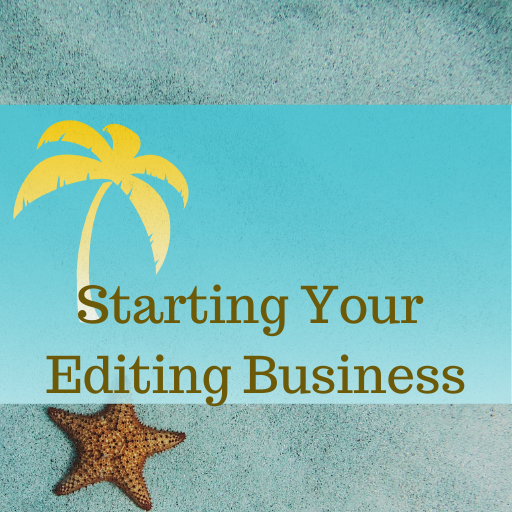Keys to Effective Manuscript Assessment
Here are my top tips for an effective manuscript assessment without having to read the entire manuscript to provide a quote.

Use these questions to help you assess a manuscript in order to provide an editing quote—without having to read the entire manuscript first.
In general, a developmental editor may be able to edit five-to-ten pages per hour (which includes writing the revision letter and reviewing queries), assuming the ms is in pretty good shape and the editor has some experience.
The following questions are meant to help you determine whether you’ll be closer to the five pages an hour or the ten pages an hour.
Having a good estimate of how long it will take you to edit the ms is crucial to drafting project quotes.
Questions to Ask for an Effective Manuscript Assessment
How long is the ms? Generally (not always) a shorter ms will take less time to edit than a longer one.
Plot complexity also increases editing time. Look at the synopsis, if available. How many times do you get lost?
Is the ms literary/general fiction or commercial/genre fiction? Literary fiction tends to take longer to edit since problems and solutions are less obvious. In a thriller, it’s easy to see that too much backstory drains the tension. But in literary fiction, it may be necessary for conveying the theme/message. You may have to spend more time thinking about the work and the author’s intention.
If the ms is a type of genre fiction, does it conform to genre requirements/conventions? For example, if it’s romance, check the ending. Is it happily ever after/for now? If not, there’s a big problem.
Does it generally conform to reader expectations? Almost no one wants to read a 200,000 words ms. Does it end on a cliffhanger? (Readers want a satisfying conclusion).
Is the core conflict compelling? (All fiction is, at heart, about conflict.) Or is it the kind of conflict that could be resolved if one character said to another, “You know, I have an evil twin”? Can you figure out what the conflict is in the first chapter or two?
Can you tell what the main character(s) wants, why s/he wants it, and what’s getting in his/her way? (Again, this should be apparent in the first chapter or two.)
Look at how a few of the characters are introduced. Is the author relying too heavily on tags (the villain with the hook for a hand) to do the characterization for him/her? Are characters introduced in trite and stereotyped terms? This will require more work on your part to resolve.
Is the setting effectively conveyed? Look at a random page in the middle of the ms. Are there sounds and smells—something other than sight?
What is the POV? Does it vary from chapter to chapter? Is there head-hopping? Does it appear extensive? Lack of control over POV indicates a problem ms.
Read a few pages in the middle of the ms. Is the author telling the story (“Joe went to the store. Then he had a fight with Maria about how much he spent on shortribs. Then he called Matt . . . .”)? Or is s/he showing it (dramatizing scenes, such as recording the actual fight Joe has with Maria). Not every action needs to be shown (or the ms would never end) but a ms that is largely told rather than shown requires more time to edit.
Would you call the author a beginner, intermediate, or expert, based on the prose? Beginners usually have bigger problems that take more time to solve. You can tell an expert “I spotted an apparent head-hop here” and she’ll know what you’re talking about; for a beginner you may have to break out your Introduction to Consistent Point of View lecture.
What shape is the prose itself in? Look at this from a developmental perspective. If the author is telling everything (“She felt sad. He was mad.”) then it will require more work to help the author see how she can show these emotions (for example).
Overall, what are the main issues? If you spot more than three or four, it is likely the ms will need more than one round of development. Or, if you spot a few big structural problems (nothing happens for the first ten chapters and then the end is rushed into three pages) as well as a few big sentence-level problems (the author overwrites everything), the ms is likely to need several rounds of development.
Is the ms ready for development? Or does the author need to go back and rethink the whole thing before you spend any time on it? You can’t deal with concept-level problems effectively in a dev edit.
If you’re still unsure about how to estimate, edit five or ten pages and time yourself. Multiply from there, remembering that writing the revision letter and mulling things over before finalizing the edit will add in more time.
Once you put an effective manuscript assessment process in place, you’ll be able to quickly go through a manuscript, decide if you want to edit it, and provide a quote that will be profitable for your editing business.
Tips for Editors & Writers
The Fine Art of Copyediting Fiction
When copyediting fiction, it’s common to run up against issues that pit author preference against standard editing approaches. For example, in a story I wrote some years ago, the main character’s neighbor is referred to as “3-B” as that is her apartment number and the MC doesn’t know her name. Fine. She can be referred…
Let the manuscript teach you how to edit it
One of the lessons I’ve learned over many years of editing is that you have to let the manuscript teach you how to edit it. Every manuscript is different and every manuscript needs a different touch. Even when an author does something I’ve seen many times before, I have to edit for that particular manuscript,…
Helping Authors Strengthen Story Settings
The setting of a novel consists of multiple elements, big and small, that nest inside each other like those little Russian dolls. We might show this hierarchy of settings like so: If you think about it, the micro setting of “the living room of 601 San Mateo Road Apartment 16” implies the existence of all…
Join the Club!
New to story editing? Begin at the beginning.




